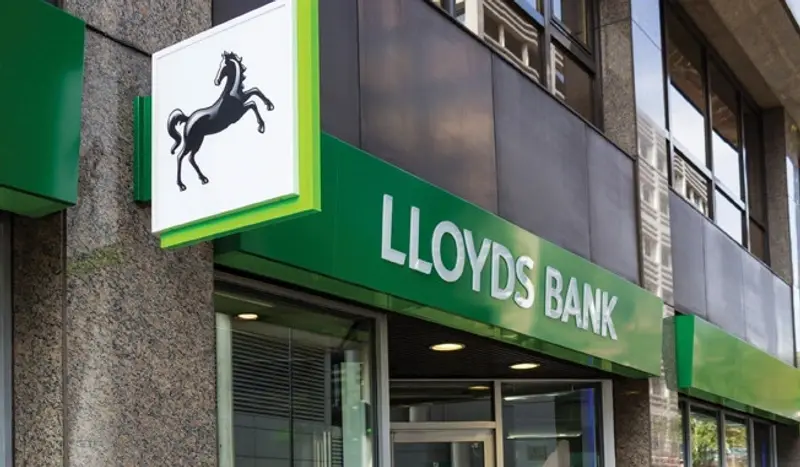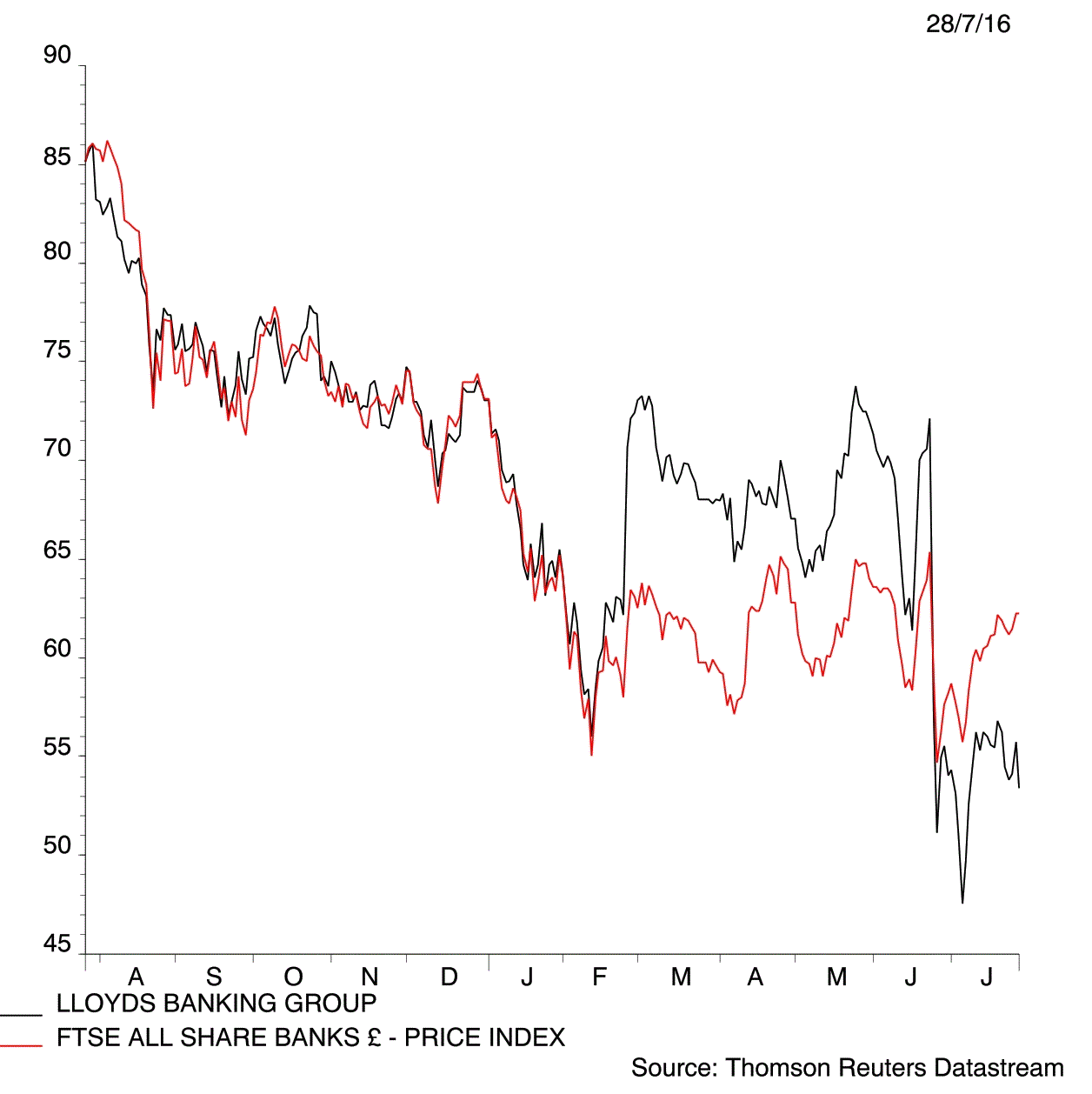
The plan to protect Lloyds Banking (LLOY) against any negative impact resulting from the UK’s decision to leave the European Union has been given a lukewarm response by investors.
Shares in the FTSE 100 lender fell 4.1% to 53.4p on fears that the response to slowing growth could include a cut in the full-year dividend. The board recommended a 13% hike in the interim shareholder return to 0.85p a share, slightly lower than the 13.2% expected.
Expectations of lower economic growth are an issue for the UK focused retail and business bank.
‘While the business will remain highly capital generative, it is possible that this capital generation may be somewhat lower in future years than previously guided,’ warned chief executive Antonio Horta-Osario.
But Investec’s Ian Gordon remains optimistic, maintaining his forecast of a 4p a share dividend for 2016.
‘In the context of potentially low/no net loan growth in H2 2016e and beyond, we still believe that Lloyds’ emerging capital surplus can, and should, be largely paid out,’ Gordon said.
Steps confirmed to prepare the bank for a potential interest rate cut and lower economic growth include shutting 200 more branches and sacking 3,000 workers. This will help chop another £400 million off its expenses bill by the end of 2017, increasing the target to £1.4 billion.
Closing high street branches was expected with more and more people accessing the bank’s services online.
Despite the pessimistic outlook Lloyds reported better-than-expected first half figures. Pre-tax profits reached £2.4 billion in the six months to 30 June, beating the £2.3 billion consensus.
This was a 106% improvement on the same period in 2015, but was mainly the result of the absence of having to allocate more cash to compensate those it miss-sold payment protection payment (PPI) insurance.
The tax-payer owns around 9% of Lloyds and the proposed sale of this stake to retail investors looks a long way off. The issue is that the bank is trading at 53.4p, which is well below the government’s 73p break-even price.





